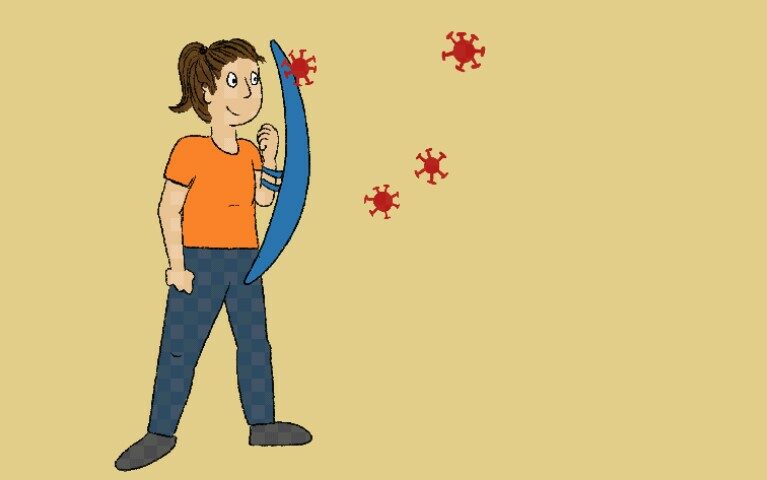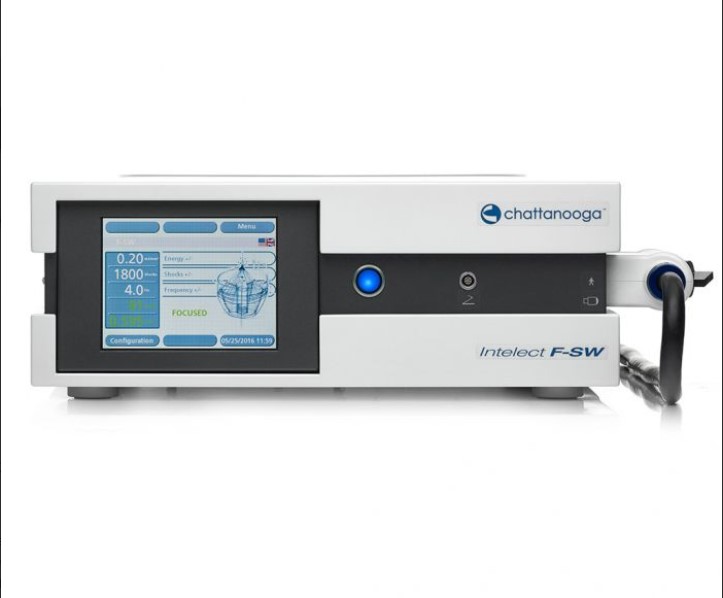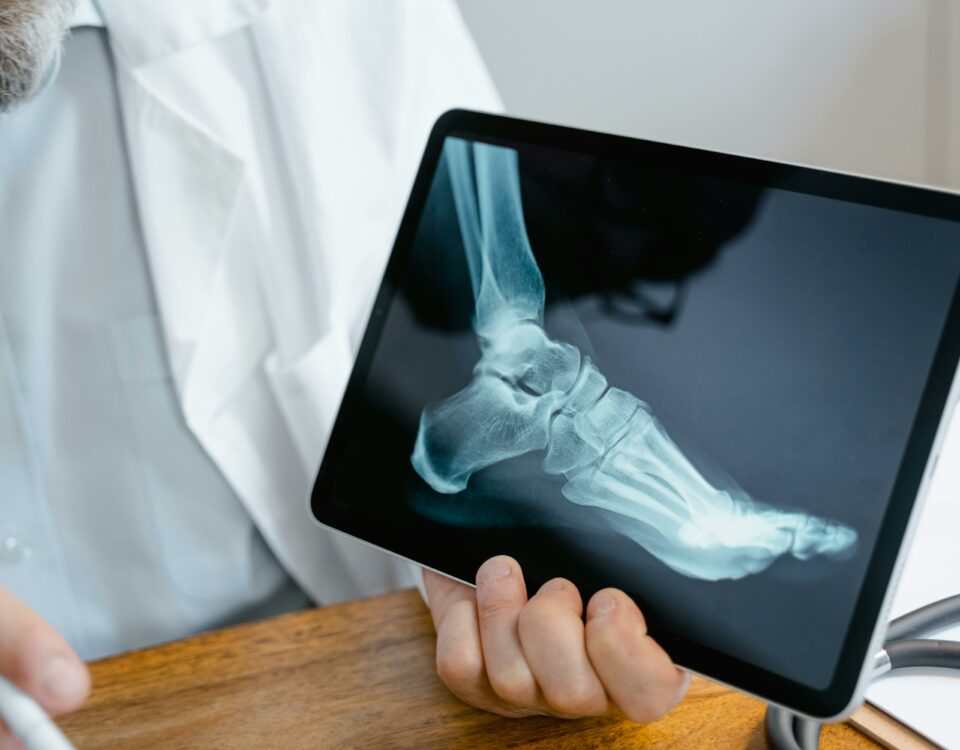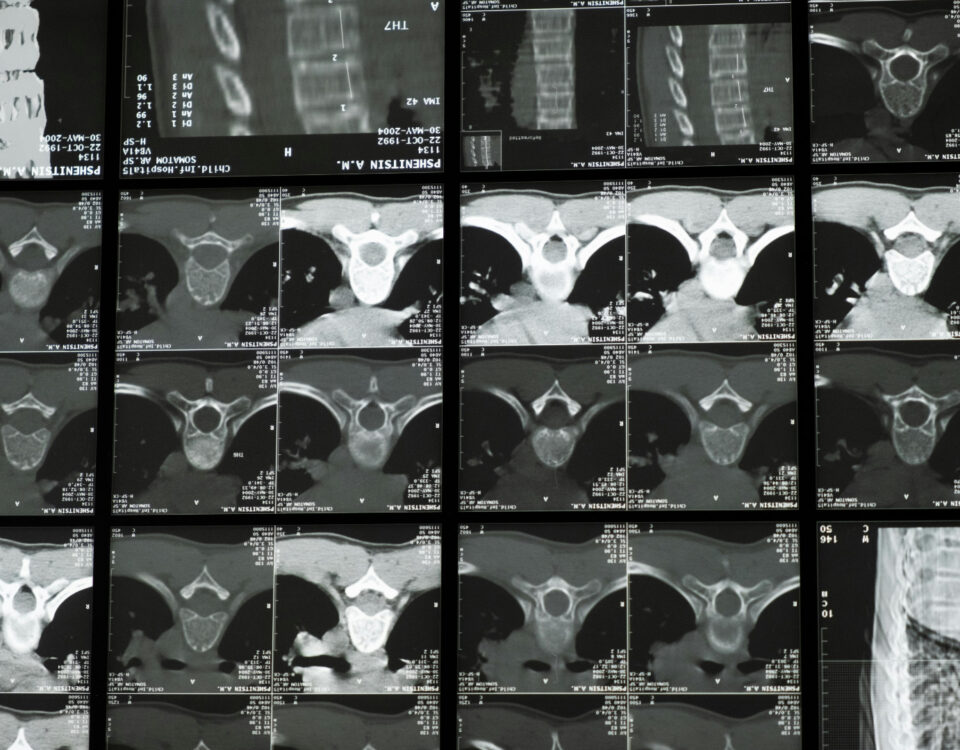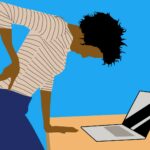
Injuries at Work or On The Job – Changes in Insurance Rules
November 25, 2022
What happens if you do nothing about a car accident?
December 8, 2022COVID-19 Super Dodgers “might” get away with “never getting” the infection. Are you a Covid19 Super Dodger? Do you know someone who has never gotten COVID-19, even if they were clearly exposed? If you haven’t gotten COVID-19 yet, you might be a “super-dodger.” Some people apparently just don’t get infected – or get infected but don’t experience symptoms (these are definitely not the same things). Some of these people were never exposed to the virus, some of them were exposed but did not get it, and some of them had Covid-19 but never showed symptoms. Either way, there are a few reasons to explain this, ranging from social isolation to sheer luck to genetic mutations, including as recently reported by the Oregon Health Authority.
At Blue Heron Chiropractic, we take the time to explain strategies and make these important distinctions to you, in order to avoid the problems that come from not being diligent. This blog will discuss some ideas about the transmission of COVID-19, immunity and “Super Dodgers”, and mention how Blue Heron Chiropractic and Dr. Dana Sibilla, DC DABCO FIANM approaches the pandemic in-clinic. A future blog will go through the details of how a person can help develop a health immune system and robust immune response. Until then, let’s talk about it more in the clinic at your appointment.
What is a Super Dodger? Can they count on “Immunity”?
First of all, this isn’t a formal scientific term, it is more of a casual label that has been created to fit the moment – same as “Super Spreader” came to be known in 2020. Some Super Dodgers might actually be “immune”, due one or more genetic mutations or variations. Some of these people actually do “get the virus” and then a supercharged immune response knocks it out quickly. Remember, an “Immune response” requires previous “exposure”, as in “getting the virus or a very similar virus”. So these folks are dodging “the symptoms” and not “the virus”. I know – it seems like the same thing – but there is no convincing evidence that any Super Dodger actually dodges the virus head-on. By the way, there is also no evidence that a super-dodger who avoided symptomatic COVID-19 with one variant, such as Delta, will avoid a new variant, such as Omicron BA.6 or BA.6 – or whatever comes next.
Doctor Sibilla is not a Super Dodger.
Doctor Sibilla treated with safeguards at Blue Heron throughout the pandemic. We were dedicated to decreasing community spread – wiping and sanitizing, with hand cleaner stations, HEPA air filters, distancing dots, treating outside, temperature screens and questionnaires, N94 masks – you name it. Dana did not get any infection even when it showed up in his home (they then isolated and masked in the house that time), but did get the virus three days after one day of flying on an airplane and eating unmasked at a very close-in restaurant. He was then sick for 20 days, which “raised heck” in a number of departments. A professor at OHSU, who has written about the mystery of super-dodgers, noticed that he was not getting the virus (or at least, as above – not showing symptoms) – even though three members of his family in the household became infected. He then went unmasked to a crowded outdoor event and did get COVID-19. He chalks that infection up to “overconfidence” (he adds that this was one of the few times he went out unmasked, even in close quarters – although not at home). Dana chalks it up to “bad judgment” and “pandemic fatigue”. Things may now have changed slightly, but neither would make this mistake again, knowingly.
If I never showed symptoms, am I not contagious?
Some of us know people who have tested positive and never showed symptoms. This does not mean that those people were not contagious and that they did not infect people. Remember, with an R-0 (“R-naught”, the number of people an infected person might reasonably be expected to infect themselves) of between 1.4 and 2.5, infections multiiply from transmission to transmission. If a person infects two – each of which infect two – who each infect two, well then we have an event. So, “Super Dodgers” could have been their own version of “Super Spreaders” in their own way – at the time. The way to keep things safe for everyone, including the immune compromised, is for people to be willing to test – even if they are asymptomatic – before entering higher risk scenarios, like visiting with an older person.
I was exposed at work and didn’t get it, am I a Super Dodger?
Probably not; these folks are relatively rare. So how to explain your situation then? Remember, if a person who is positive for the virus does not yet – or ever – develop the “usual” high density of virus in their upper respiratory system, and does not infect you with their saliva in close contact, there might be no transmission. It typically takes more than one virus to infect an individual – one virus is not a predictably infectious dose. And there are also people who just don’t shed a lot of virus. So if you were exposed to someone COVID-19 positive but you didn’t get sick, it could be because that person wasn’t shedding enough virus particles. That does not then make you a Super Dodger – not even close – sorry. It also does not make them a non-spreader.
Is it luck? I’m lucky, can I count on it?
There would definitely be a component of luck. As above, you may never have encountered an exhaled cloud of, say, Omicron. You may not have shaken hands with someone who had only a low-grade fever, who had just wiped their nose or face. You might not have tried someone’s drink out at club. However, dodging the virus again and again – and yet again – probably involves a little bit more than luck – but we may not know about this for a while. Some people simply might have better immune systems or be more equipped to handle the virus, or some people might have never been exposed. I would say, “definitely don’t count on being a Super Dodger”, and don’t take chances. And the person you infect, that goes on to become gravely ill – because they never got vaccinated or boosted, for example – may be far down the chain and you’ll never know them. Be smart, be safe, be respectful and responsible. There are still some who continue to take many precautions to avoid exposure to COVID-19 to avoid impact on family, friends, the community, jobs and income.
I have “good genes”, so is there a genetic basis?
Researchers are testing if there a genetic component to dodging COVID-19 infection or symptoms. Certain genetic mutations make some people immune to HIV, for example, and some mild forms of sickle cell anemia makes some people immune to malaria. None of this is yet known for COVID-19, although a team is studying how people who tested positive but experienced no symptoms were much more likely to have a specific variation in a set of genes that code for certain immune system proteins that triggers a super-charged immune response to COVID-19, eliminating the virus before it gets a chance to spread.
What about exposure to other viruses?
The common cold virus is a coronavirus. Some people who have previously had a cold caused by a milder form of coronavirus may have some protection against experiencing symptoms when they have COVID-19.
So are there invincible “Super Dodgers”?
Dr. Messer, above, cautioned that he hasn’t seen “convincing evidence that this would allow a person to completely ‘dodge’ COVID-19.” It’s also quite difficult to test all the various ways these theories can play out.
What’s the Covid-19 Bottom Line?
According to OHSU, “Some people are not getting sick because they got a great immune response to the vaccine, and others are not getting sick because they got lucky”. And, as above, maybe some other people never got enough viral particles from the infected person they were exposed to. Maybe all of the above. The best strategies involve practicing some relative distancing, maintaining good ventilation, getting vaccinated and boosted, wearing masks in crowded indoor spaces, staying home when you’re sick and testing if there is any question or concern are all good protections against spreading the COVID-19 virus or getting infected.
Doctor Sibilla would like to thank and credit the Oregon Health Authority and OHSU for providing the basis for material in this blog.
How is Blue Heron handling the COVID-19 Pandemic at this time?
Doctor Sibilla and all staff you will encounter are fully vaccinated with updated boosters; Dana’s on his fifth shot to date. We are still currently masking inside the clinic, as is required for all healthcare facilities. If you don’t have an appropriate mask, we will provide you with one. Access Chiropractic safely and securely at Blue Heron Chiropractic & Healing Arts Center, with Dr. Dana Sibilla, DC DABCO FIANM.

